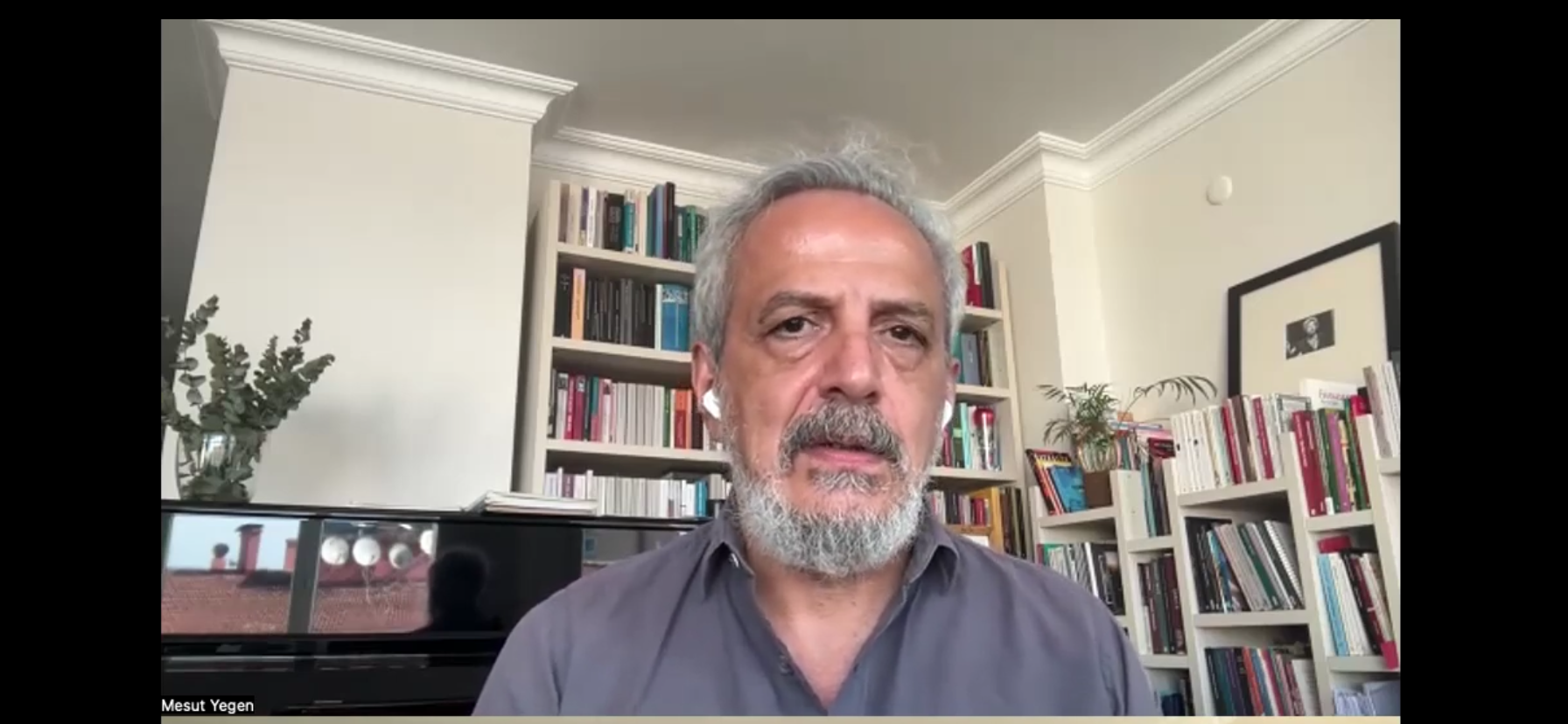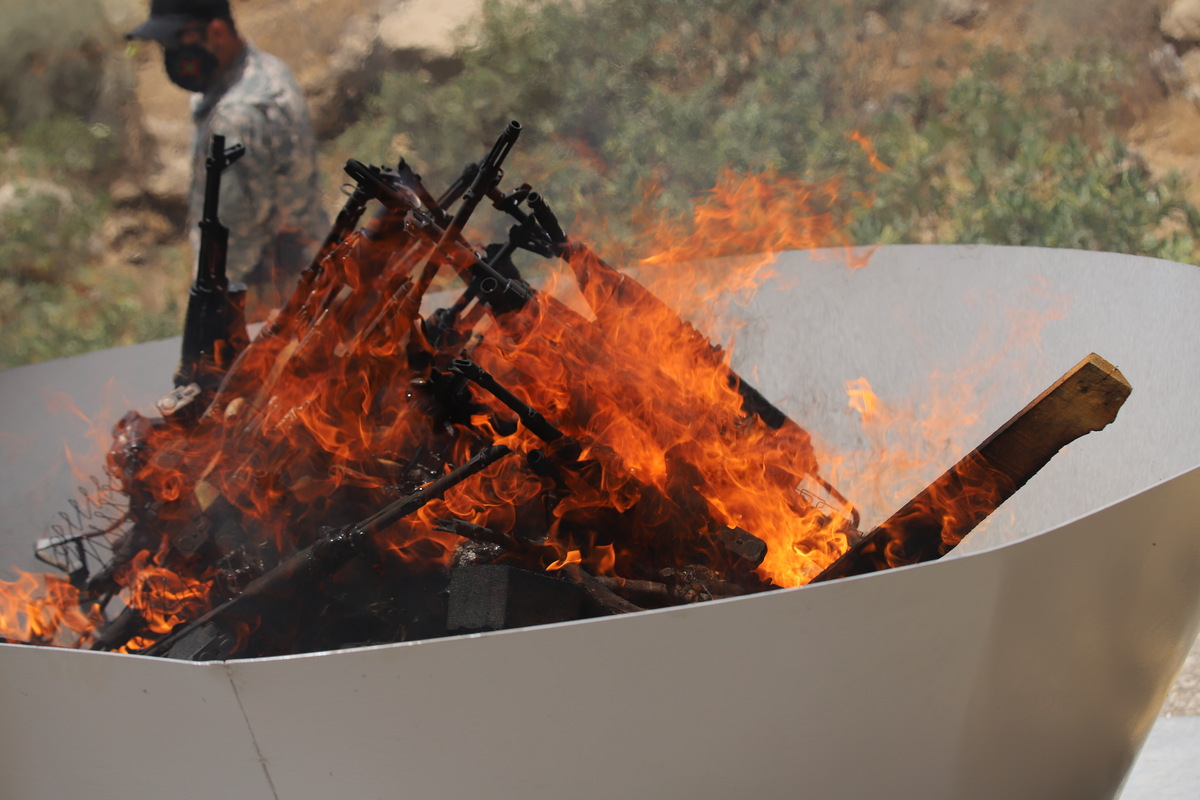Sociologist Prof. Mesut Yeğen Questions Turkish Government’s Legitimacy
The crackdown on Turkey’s main opposition, the Republican People’s Party (CHP), intensified with the recent appointment of a trustee to its Istanbul provincial branch. Ahead of the September 15 CHP Congress case – a ruling that could see a trustee formally take control of the party – this development is widely seen as part of a broader effort to reshape the country’s political landscape amid a persistent legitimacy crisis for the regime.
In an interview with The Amargi, sociologist Prof. Mesut Yeğen examines how the CHP has navigated these pressures–maintaining street-level political engagement while resisting attempts to neutralize its leadership. He analyzes the government’s strategies to consolidate power and the potential effects on voter behavior and social opposition, as well as the role of the pro-Kurdish opposition and the ongoing peace process.
The Amargi: The appointment of a trustee to the CHP Istanbul provincial branch and the police raid on the party’s headquarters have reinforced predictions that the court ruling on the CHP congress case set for September 15 will fall short of public expectations for progress toward normalization and democratization in relation to Turkey’s Kurdish question. In other words, the government appears determined to see its crackdowns through to the end; yet, the CHP is also refusing to back down. How do you assess this broader process?
Mesut Yeğen: Your observation is correct. Both sides are moving determinedly toward their goal. We might be headed towards a wall. The determination of who will pull back may influence the outcome. Who will hit the brakes first? This is my guess about how this will play out. But we will all move in that direction together, and, most likely, this will take us to an election. Through an election, Turkey will experience a renewal.
Now, as you said, there is determination here: the ruling Justice and Development Party (AKP) has essentially concluded that its warnings to the current leadership of the CHP have not worked. Since that did not succeed, it is trying to change the leadership. The message was this: “Stop supporting Ekrem İmamoğlu [as a viable contender for Erdoğan] or doing politics by benefiting from his huge popularity. Accept the results of the operations we carried out through the municipalities and conduct politics centered in Ankara. Withdraw from the streets.”
The CHP leadership does not seem to have responded positively to this call. What the AKP is attempting now is a change of leadership to pull the CHP onto this desired line. It is clear why the AKP is doing this: especially after the 2024 local elections, the regime has not been able to generate legitimacy. It cannot reach or surpass the threshold of legitimacy it has set for itself.
After the 2017 constitutional change, Turkey moved to a presidential government system, and its legitimacy threshold is 50+1 (i.e., more than 50% of the valid votes). But, as the 2024 local elections showed, Erdoğan and the AKP, together with the Nationalist Movement Party (MHP) have been hovering around 40–45%, .That picture has not changed, and it does not look like it will change anytime soon.
So Erdoğan has realized this: he cannot close that legitimacy gap through normal politics, nor by broadening the People’s Alliance he formed with the MHP
So Erdoğan has realized this: he cannot close that legitimacy gap through normal politics, nor by broadening the People’s Alliance he formed with the MHP. He set aside the niceties in favor of a more confrontational, “kick-and-punch” approach. When I say “kick-and-punch”, I mean it partly figuratively and partly literally. In other words, using the police on one side and the judiciary on the other – together – the AKP attempts to respond to its inability to close that legitimacy gap.
So, the logic is: “If I can’t grow, I’ll neutralize my rival; I’ll shrink my rival.” The aim, essentially, is to remove a political cadre or party that appears capable of taking power in the next elections from the game by legal means or police action, or to force it to accept a diminished role; in short, to push it into certain limits or constraints.
The question is whether we will change this situation smoothly, or whether we will change it by another, more destructive route by hitting a wall. Will we move to a worse place than the present? Those things will become clear in the coming months.
The Amargi: The CHP does not seem to be backing down. So, what could happen as a result of this? You said that most likely there will be an election. But under what conditions would this happen, for example?
Mesut Yeğen: In my view, the CHP has taken the most positive stance it could. It has shown determination.
Despite various scenarios placed before it, or certain temptations, the CHP did not give in after Ekrem İmamoğlu’s arrest. On the contrary, they know that with İmamoğlu’s candidacy in the upcoming presidential election, the government could be changed. And they do not appear to have abandoned that idea.
People wonder how long the CHP can sustain this harsh opposition line, this politics centered on rallies and the streets.
On the other hand, some criticisms have been coming from opposition circles. People wonder how long the CHP can sustain this harsh opposition line, this politics centered on rallies and the streets. Constantly being out in the streets may also alienate voters who have recently begun to approach the CHP but who are not traditional CHP supporters, people say. Some argue that the line being followed will not yield results.
I think those criticisms are unfounded. It is not right to expect major results in such a short time. This is a line, a course of action; whether it will yield results or not will be shown by time. So, to say, within a few months, “this didn’t work, let’s switch to another approach” is not right.
Secondly, those who criticize the CHP on this issue also need to put forward alternatives. Otherwise, the alternative is the line the government imposes on the CHP: retreat to Ankara, limit yourself to central-office politics, and criticize the government only at parliamentary group meetings just for the sake of words, as was the case in the era of former CHP chairman Kemal Kılıçdaroğlu. But the CHP seems determined not to do this, and in my view, it should not.
That said, none of this means that the CHP’s politics since March 19 have been flawless. It would not be sufficient if the CHP frames this matter to voters solely as an issue of a lack of justice and democracy, as “a struggle between a non-democratic government and an opposition striving to create a democratic order”, but beyond that fails to communicate stronger ideas or emotions to voters.
CHP members must show that this struggle is not only about democracy and justice, but also about whether Turkey can be governed well and become a more prosperous country…
CHP members must show that this struggle is not only about democracy and justice, but also about whether Turkey can be governed well and become a more prosperous country, because the current system has long condemned Turkey to poverty and incompetent governance. For average citizens, there are perhaps more critical problems than a lack of justice and democracy. The CHP needs to add these topics to the line it has pursued in recent months.
The Amargi: If the regime succeeds in paralyzing the CHP, turning a de facto situation into a de jure one, formalizing the autocracy through a staged election, what impact will this have on society, on social opposition, voter turnout, and the enduring legacy of the Gezi Resistance, which continues to shape street-level activism and popular engagement?
Mesut Yeğen: There is a consensus that Turkey is already governed by an authoritarian regime. All media power had already fallen into the hands of the government, the judiciary was being used to pressure the opposition, and economic resources were allocated almost exclusively to government members and supporters. Despite all this, until recently, there was always a possibility that the regime could be changed via elections. The 2023 elections showed how close we came to that threshold, and the 2024 local elections suggested that change could realistically occur in 2028.
What Erdoğan and the AKP want to do now is remove the possibility that the regime or the government could be changed through elections. In other words, parties will appear to exist, even as we are moving toward a pruned, neutralized, paralyzed multi-party system—more authoritarian but formally multi-party—in which changing the government becomes impossible. This is basically where Erdoğan wants to take things.
It is not clear how society will react to this. As similar examples show, governments in such situations sometimes lose quickly; at other times they manage to extend the power they seized for a while, even make it permanent. If you look at public opinion polls since March 19, the CHP, which had long been stuck at around 25% voter support, has now almost pushed toward 35%. The AKP has also increased its vote share; it managed to regain conservative and nationalist voters who had begun drifting away. But the tendency for voters to gather around the CHP is stronger.
The CHP leadership has reached today’s level of support because it has done the right things. Essentially, the opposition electorate is trying to create an option for itself, and as of now, rationally, that option is presented by the CHP. Yes, Erdoğan might be able to do something by changing the CHP leadership, but he does not seem capable of changing the people’s desire for change. He can only suppress it, restrain it. And that will make the new situation very fragile. The state and the economic situation may further increase this fragility. So, from the regime’s perspective, stability does not appear likely anytime soon.
The Amargi: What do you think about the DEM Party’s stance against the attacks on the CHP?
…the DEM Party’s voters and cadres are not ready to line up on the streets alongside the CHP.
Mesut Yeğen: Contrary to what some opinion leaders close to the CHP expect, the DEM Party’s voters and cadres are not ready to line up on the streets alongside the CHP. This is because there is an ongoing peace process, and they do not want to risk it. I do not think this pattern will change much in the short term.
The DEM Party and the wider Kurdish movement know this: a regime that completely neutralizes the CHP would also be dangerous for the DEM Party and the Kurdish movement. Therefore, a strong CHP is certainly an option that the DEM Party wants to preserve.
Therefore, contrary to what some opposition circles assume, the DEM Party will not support the ruling People’s Alliance; that’s out of the question. The only concern behind their stance is the desire not to risk the ongoing process. Aside from that, the DEM Party’s political foresight is stronger than most people think.
Serap Gunes
Serap Güneş is a freelance translator and writer based in Istanbul. She holds a PhD in International Relations and European Politics from Masaryk University, where her research focused on minority rights and EU–Turkey relations. Her work has appeared in both academic journals and independent media outlets.


